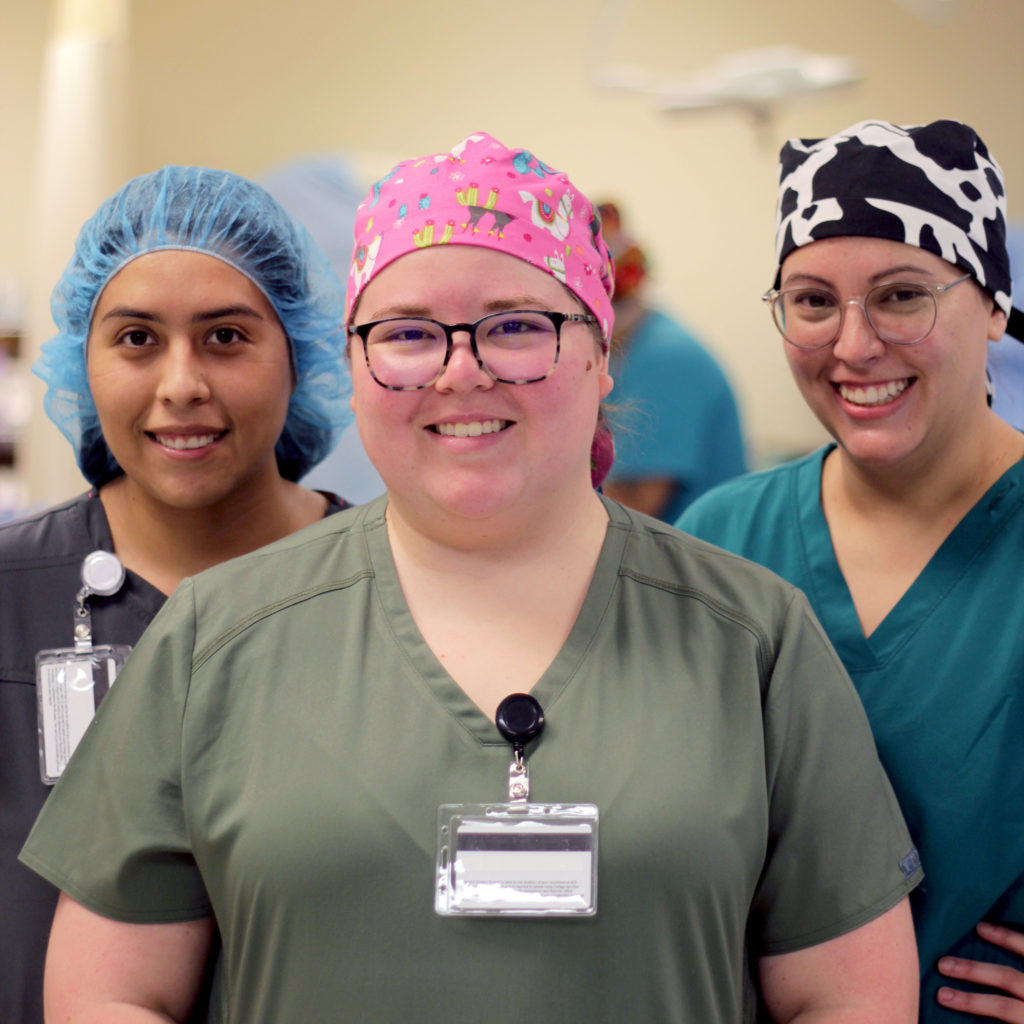Frequently Asked Questions
What's the first step to apply?
First, you must be enrolled at ACC. Please see this page for information about how to get started.
I want a career in health care but I don’t want to work with needles or body fluids. Will surgical technology be a good choice for me?
No. Surgical technologists, also called scrub techs, assist in surgical procedures under the supervision of surgeons, registered nurses, or other surgical personnel. Surgical technologists are members of operating room teams, which most commonly include surgeons, anesthesiologists, and circulating nurses. Before a surgical procedure, surgical technologists help prepare the operating room by setting up surgical instruments and equipment, sterile drapes, and sterile solutions. They assemble both sterile and nonsterile equipment, as well as adjust and check it to ensure it is working properly. Surgical technologists may help get patients ready for surgery by performing hair removal and disinfecting incision sites. They transport patients to the operating room, help position them on the operating table, and cover them with sterile surgical drapes.
During surgery, surgical technologists pass instruments and other sterile supplies to surgeons and surgeon assistants. They count sponges, needles, instruments and supplies; cut sutures and hold retractors during a surgical procedure. They also use sponges and suction devices to contain blood and body fluids during a surgical procedure. Surgical technologists help prepare, care for, and dispose of specimens taken for laboratory analysis and help apply dressings. Some perform functions related to cleaning and sterilizing instruments used in surgery and some help operate diagnostic equipment.
After a surgical procedure, surgical technologists may help transfer patients to the recovery room and clean and restock the operating room.
What skills or backgrounds do most surgical technologists have?
There is no specific background that ensures an individual will be successful in the Surgical Technology Program or as a surgical technologist. Strong science backgrounds in anatomy and physiology, microbiology and pharmacology, excellent psychomotor/hand-eye coordination, organization, attention to detail, concentration and interpersonal skills are a must to learn and work as a surgical technologist.
How long does it take to learn to be a surgical technologist?
Austin Community College offers an Associate of Applied Science (AAS) Degree in Surgical Technology. The course of study for the AAS Degree includes 6 prerequisite courses, 2 co-requisite courses, and 3 semesters or 1 year for the Surgical Technology Program component.
A certificate program is also offered. The certificate requires 6 prerequisite courses and then 3 semesters for the surgical technology program component.
What is the outlook for jobs in surgical technology in the Austin/Central Texas area?
Surgical technology continues to expand and grow. It is anticipated that this trend will continue with faster than average growth. The status of surgical technology professions, median salaries and other important data can be found on the web site for the Bureau of Labor Statistics.
The employment rate for ACC Surgical Technology Program graduates has been on the rise with many students securing employment immediately upon graduation. The program is highly regarded with Austin area and Central Texas employers. Hospitals will continue to be the primary employer, although much faster employment growth is expected in offices of physicians and in outpatient care centers, including ambulatory surgical centers.
Is the ACC Surgical Technology Program accredited?
Yes. The Surgical Technology Program at Austin Community College is accredited by The Commission on Accreditation of Allied Health Education Programs. Accreditation is the public’s assurance that the program has met rigorous standards of accreditation which will ensure that the student will receive an education that will provide the student with the knowledge, skills, and professionalism necessary for a successful career in surgical technology.
The Surgical Technology Program of Austin Community College received ten (10) years unconditional accreditation from the Commission on Accreditation of Allied Health Education Programs (CAAHEP) in May 2013.
Accreditation exists to establish, maintain and promote appropriate standards of quality for educational programs in surgical technology and to provide recognition for educational programs that meet or exceed the minimum standards outline in the CAAHWP Standards and Guidelines for the Accreditation of Educational Programs in Surgical Technology.
These standards are used for the development, evaluation and self-analysis of surgical technology programs.
How much does it cost to attend the ACC Surgical Technology Program?
An approximate cost report is available here.
How much clinical experience is included in the Surgical Technology Program?
The clinical education component of the program requires a total of 2-1/2 semesters of training with a total of 748 clinical contact hours and at least 120 surgical procedures to include general surgery and various specialties such as cardiovascular, plastic, orthopedic, neurology, urology and more.
During the first semester of the program, students do not immediately attend clinical training because they must first learn basic operating room techniques and procedures and be able to practice and demonstrate competency by passing skills exams in the program’s laboratories.
Can I do this program part-time or in the evening only?
No. The ACC Surgical Technology Program is designed as a full-time course of study which enables the student to finish as quickly as possible and earn the ability to take the National Certification Examination in Surgical Technology upon successful completion of the program. Specific courses must be taken each semester and all courses in that semester must be taken concurrently.
Clinicals must also be done during regular department work hours which are weekday, day time hours only.
Can I request to be assigned only to clinical sites inside the city of Austin or on the bus lines?
No. Surgical Technology students may be assigned to any of the clinical sites utilized by the program in the greater Austin area and may not request assignment to a particular site for any reason. Students are assigned to a variety of clinical sites throughout the length of the program to provide a well-rounded clinical education as required by programmatic accreditation.
Sites within the city of Austin may not be served by the public transit system. Therefore, it’s recommended that students have reliable transportation.
How many students are accepted each semester?
We admit 20 students each Fall and Spring semester: 10 for study at Eastview Campus, and 10 for study at Round Rock Campus.
What is the application deadline?
There is no application deadline. Students are admitted based on their application date and availability in the program.
How do I apply, and what are the requirements?
Step-by-step instructions on how to apply to the ACC Surgical Technology Program can be found on the program’s Application Process web page. A minimum 2.7 GPA in courses related to the program is required to be eligible to submit an application.
Please note that a link for course substitutions can also be found on the above referenced page.
Can I repeat prerequisite and co-requisite courses for a higher GPA?
Understanding that students need an opportunity to improve what may have been a “false start” in college, repeated course grades will be considered. If a course is repeated, the higher qualifying grade will be considered in the GPA calculation.
Can I transfer in courses to fulfill the prerequisites?
Yes. ACC will make the final determination on transfer courses; only credits from regionally accredited colleges and universities are accepted by ACC. However, upper division courses will not be accepted.
Can I get credit for military surgical technology training?
Credit may not be awarded for military surgical technology training. Credit may be awarded for supporting courses like Pharmacology and Medical Terminology. Please visit this page to learn how to receive credit for your training.
I need to work at least part-time if I am admitted to the Surgical Technology Program. Is this possible?
Maybe. The amount of time a surgical technology student must spend in classes, labs, study, practice and attending clinical is significant. Plan to spend 2‐3 hours on preparation for every hour of class and lab.
The Surgical Technology Program cannot make accommodations for a student’s work schedule. It is recommended that a student work no more than 20 hours a week if necessary. It’s also recommended that you plan ahead for your financial situation if admitted to the Surgical Technology Program.
Are there any post-admission requirements?
Yes. After an offer of admission is received, the department will inform students of the post-admission requirements and provide detailed instructions and deadlines. Some of these requirements will include:
- Criminal background check
- Drug screen
- TB test & physical exam
No action should be taken on these requirements until instructed to do so by the department. Completing these requirements too early will result in the student having to repeat them in the specified time frame.
Are Surgical Technology students in class a lot during the week?
Click here to see a sample schedule for the Surgical Technology Program.
Is there a tardy or absence policy for the Surgical Technology Program?
Yes, there is a tardy/absence policy that only applies to the clinical component. Classroom attendance is voluntary.
Lecture, lab and clinical schedules are provided to the student at the beginning of each semester. Due to the intense nature of study, missed class or clinical hours may seriously affect a student’s ability to complete the requirements of his/her course(s).
Each course syllabus and the Surgical Technology Student Handbook contain information regarding attendance requirements and procedures. Excessive tardiness may result in the progressive discipline process or even withdrawal from the program.
What types of financial aid are available to me?
The counselors at ACC are more than happy to help you investigate funds available for your education. For information about financial aid, visit ACC’s Tuition and Financial Aid page.
Search the Health Sciences Website
Surgical Technology Updates
Bats to Cats Transfer Program
Start at ACC and transfer seamlessly to Texas State University! If you are pursuing a Bachelor's degree, get the details on admissions requirements, deadlines, and financial support.
Read moreUPDATE: Central Health MAP Basic Insurance
Central Health - Medical Access Program (MAP) Basic coverage is no longer accepted at clinical sites effective Fall 2024. Only MAP (non basic) will be accepted.
Read moreCastlebranch new account creation process
There is a new process to create a Castlebranch account. Preview the new process and other videos to help you create your Castlebranch account.
Read more

